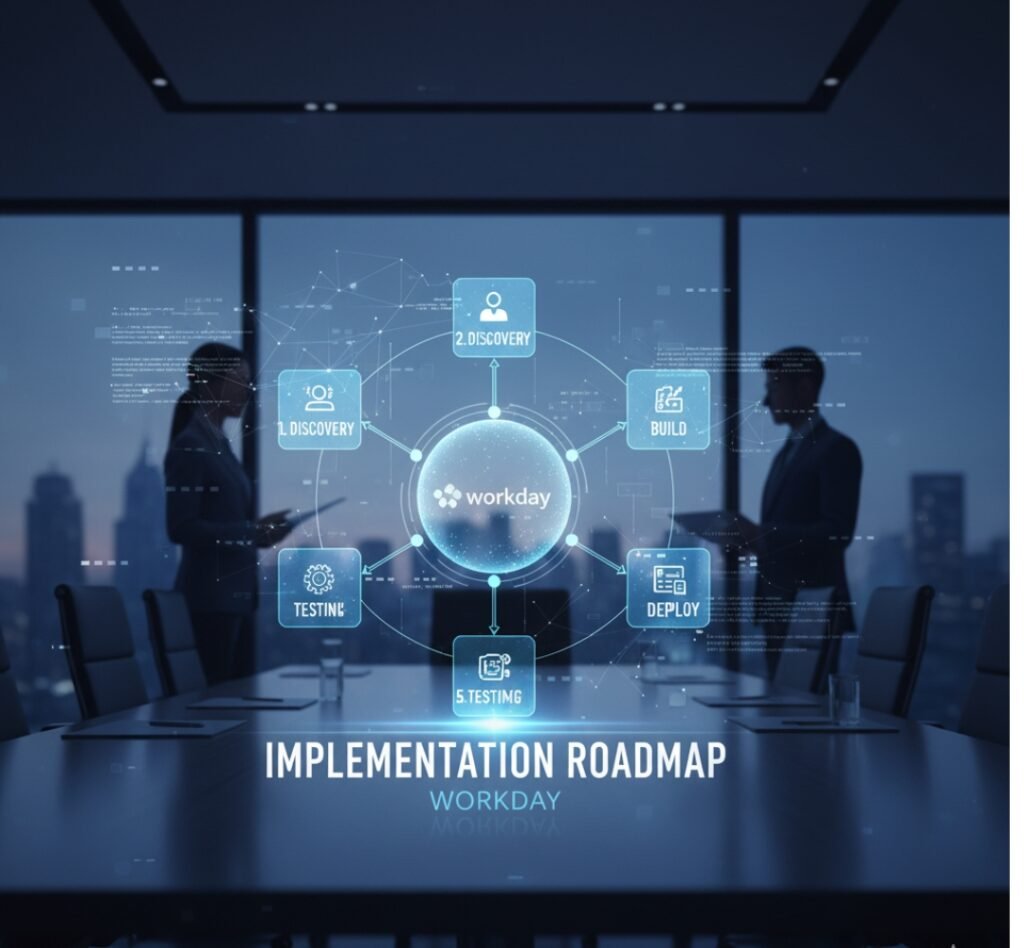In the competitive business world today, businesses are ever seeking ways of enhancing efficiency and making the processes easier. Workday ERP has emerged as a ground-breaking technology that alters the manner in which business organizations operate, manage their finances, and also manage their human resources. This blog will discuss the key milestones and actions to successful Workday ERP implementation, and can assist businesses open up their potentials.
Planning along with Business Case Development
Organizations must lay a strong foundation via meticulous strategic planning before launching into execution. During this phase, comprehensive evaluations of the present systems are carried out, problems are located, and specific goals are established. To guarantee alignment with company objectives, companies should involve important stakeholders from all departments. A strong business case convinces executives to support the next transformation journey and shows the anticipated return on investment.
Building Your Dream Implementation Team
Putting together the correct team with a range of skills and capable leadership is crucial to success. External consultants who provide technological expertise and internal subject matter experts who comprehend business procedures make up the perfect team. The change management professionals prepare employees to make the transition, and project managers organize the events. This collaborative process in the entire process will ensure all aspects of implementation are given the necessary focus and resources.
Data Migration and System Configuration Excellence
One of the most important stages of implementing Workday is data migration. To comply with Workday’s standards, organizations must clean, verify, and change their current data. Configuring a system includes establishing reporting structures, security procedures, and workflows that meet business requirements. Before going live, extensive testing guarantees system operation and data integrity. This rigorous approach minimizes costly errors and assures seamless operations from day one.
Extensive Instruction and Change Administration
The ultimate success of any ERP deployment is determined by employee acceptance. Organization-wide user roles and skill levels must be covered in thorough training programs. Employee confidence in utilizing the new system is bolstered via interactive training, online courses, and practical practice sessions. Strategies for change management deal with opposition and generate enthusiasm for new possibilities. Everyone is kept updated on developments and advantages through regular contact.
Support for Go-Live and Ongoing Optimization
Strong assistance is needed throughout the go-live phase to handle any urgent issues and guarantee company continuity. In addition to continuously monitoring system performance, dedicated support teams offer real-time help. Post-implementation optimization entails examining user input, and spotting areas for improvement, along with putting those improvements into practice. Frequent feature additions as well as system upgrades keep the platform up to date with changing business requirements. Your Workday investment will provide the highest long-term return thanks to this continuous dedication.
Conclusion
A successful Workday ERP Implementation goes beyond planning and execution—it requires a robust testing strategy to ensure seamless adoption. This is where Opkey delivers unmatched value. With 30,000+ pre-built test cases, AI-powered impact analysis, as well as self-healing scripts, Opkey helps enterprises cut maintenance by 80% as well as accelerate testing cycles from weeks to days. Its no-code platform empowers both IT along with business users to scale Enterprise Workday testing confidently, ensuring every update is smooth, and secure, in addition to risk-free. By partnering with Opkey, organizations gain efficiency, speed, and confidence in their Workday journey.
Experienced SEO Specialist and Web Developer with a strong focus on off-page SEO and guest posting. With 3 years of proven expertise, I help businesses improve their search rankings and build sustainable online presence.
